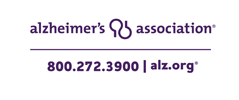
Chapter 3—
Danger on the Trail: How Alzheimer’s Can Harm Your Health
Ever hear the one about the hippopotamus and the butterfly who fell in love? As the hippo begins thinking about proposing and consummating the marriage, he quickly realizes he has a problem. So, he seeks out the wise old owl for advice. The owl says, “I can see that this is troubling you. You’ve come to the wisest animal for advice. Here’s your answer: what you’ve got to do is turn yourself into a butterfly.”
The hippo starts to walk away but quickly realizes that he doesn’t know just how he can do that. He returns to Mr. Owl and says, “I would do anything for my dear loved one. Please tell me, how can I change myself into a butterfly?”
“Sorry, buster,” the owl replies. “I just determine policy.”
***
Like that owl, no matter how wise you think you are, Alzheimer’s has truths about it that you cannot change. Your spouse is going to get worse, mentally and physically. No one’s got the answer to that. And you’re likely to suffer mental and physical harm, too. That shouldn’t come as a big shocker because caregiving is a continuous process that puts unprecedented demands on your time, energy, and emotions. You cannot afford to be as arrogant as that owl.
If it makes you feel any better, you are not alone. It is estimated that, in 2015, there were 15.9 million Americans providing unpaid care for people with Alzheimer’s and other forms of dementia. If you think 15.9 million sounds like a lot of people, you’re right. It’s eleven times the U.S. workforce of Walmart!
All those tasks you take on—out of love, concern, and a sense of responsibility—add up to an average of almost twenty-two hours per week. So, nationwide caregivers provided 18.1 billion hours of unpaid assistance in 2015. That’s billion with a b.
Here’s another way of looking at what caregivers do. The federal minimum wage is $7.25 an hour. Paid home health aides’ salaries average $17.24 an hour, reports the US Department of Labor. The care you are providing has to be worth more than what a fast-food worker makes, right? But maybe it’s not as valuable as that of a trained professional health aide. So average those two salaries, and it’s $12.25 an hour. Of course, you’re not in it for the money. But if all of us caregivers banded together, we’d have given $221.3 billion worth of care in 2015.


